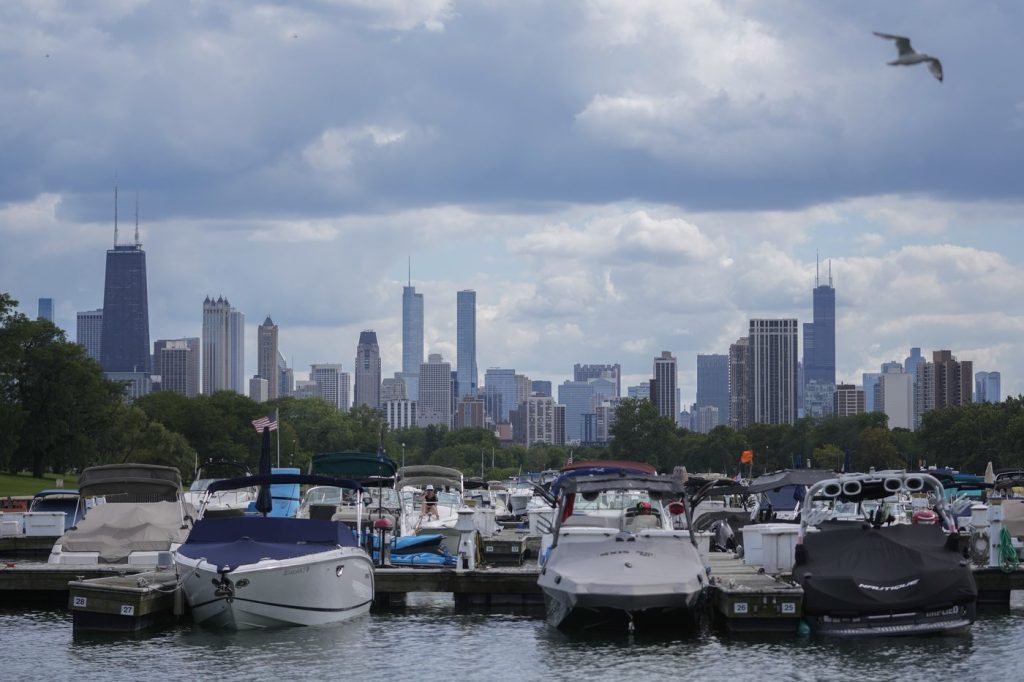The Trump administration is gearing up for a significant immigration enforcement operation in Chicago, aiming to bolster federal law enforcement presence in major cities run by Democratic officials. Plans for the initiative, which is expected to commence around September 5, involve deploying officers to the city over a period of approximately 30 days, according to sources within the Department of Homeland Security.
This operation follows previous immigration sweeps this summer in Los Angeles, reflecting a broader strategy under President Trump to intensify immigration crackdowns in urban areas with sizeable immigrant populations. Chicago, known for its diverse demographic, has a strong legislative framework that resists cooperation with federal immigration enforcement, which may complicate the efforts of federal agents.
The administration's tactics include a request to the military for use of the Naval Station Great Lakes, located north of Chicago, to facilitate immigration enforcement. Participating agencies include U.S. Immigration and Customs Enforcement (ICE) and Customs and Border Protection, focusing exclusively on immigration rather than pulling resources for a generalized crime-fighting campaign.
Resistance from local Democratic leaders is anticipated, mirroring pushback seen in California against aggressive immigration policies. Illinois Governor JB Pritzker has expressed concerns, emphasizing that Chicago does not require military intervention to address crime. Tensions between state officials and the federal government could intensify as the operation unfolds.
Since launching its crackdown in Los Angeles about two months ago, the Department of Homeland Security has reported approximately 5,000 immigration arrests. Despite a temporary court ruling against racial profiling in the region, federal authorities remain undeterred and are seeking to continue their operations. Secretary Kristi Noem reinforced this stance, stating that the administration is committed to finding and removing individuals in the country illegally.
The enforcement efforts in Los Angeles have been characterized by aggressive tactics, including swift raids conducted by heavily armed agents in civilian clothing. Recent statistics indicate that a significant percentage of arrested Mexican nationals are employed in sectors like construction and car washing, highlighting the operation's impact on local labor markets.
As federal agents prepare to extend their reach into Chicago, the implications for both the local immigrant community and the broader socio-political landscape remain to be seen. With strong opposition expected from state leaders, the operation could further exacerbate tensions between local and federal authorities.











